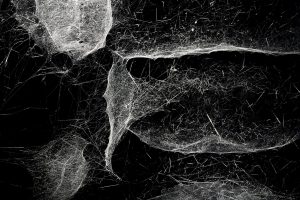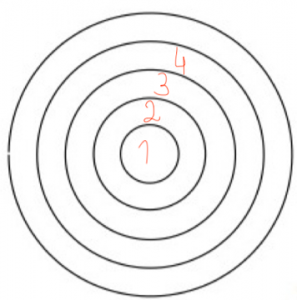Education
Noun
- the process of receiving or giving systematic instruction, especially at a school or university.
- an enlightening experience.
Two different definitions. Could they be one? What has education become?
After the occupation and having read one letter to students from an anonymous lecturer (see link attached), I became haunted by the questions: “What am I doing here?”. What do I want my education to be? Is it for myself? Is it for the diploma at the end?
This course was the opportunity to explore, think, and process further what another education could be about.
It was for me an adventure: Exploring education and collaboration through a new eye. Questioning one’s expectations. Understand the other. Collaborating. Reflecting on the current system. Communicating my wishes and ideas. Thinking. Creating. Daring creativity. Discussing. Living deception and fear of unproductiveness. The pressure of time. Ecology of human to rethink different ways of living education. Opening conversation in an era where human activities leave an impact that profoundly changes the ecosystem.
I wanted to question and live the interdisciplinary approach that is necessary to understand our surroundings and our relations to the environment, to others and to all inanimate and animate organisms. For me, as a student in ecology, this changing perspective on education is the basis of what our future as a society will hold. We need a transformation of our approach to life and all cultural aspects.

A piece of art from Tomas Saraceno, an Argentinian artist working on spider-webs to make the invisible connecting system visible again. I think this piece of art triggers thoughts of the power of network and interdependence of everything in our ecosystem. Example of porous communication through vibrations, and thin sensitiveness.
First thoughts earlier in September
Asking myself where I wanted to go with the course made me realize the wish I had to practice and take an ecological approach to the material and environment around me. As an example, before questioning “What is a University?”, I asked myself “What is my University?”. What is its governance and its parts? I started looking at the way it works, and it seems to be a huge task. For this, the bureaucracy group seemed to be a good idea to approach this topic.
According to me, the first step that should be taken is to find our holistic goals. From that, we could find a structure that works for us. Although we think the structure is the basis on which we will be able to concretely create this course, I feel like it cannot happen if we do not have our common goals. This goal should be created from our different, individual perspectives (circle of vision).
I care about the stake I have on creating my own learning and thus the knowledge of tomorrow (due to the interconnectedness of events).
I feel a bit worried because there is no set line. We are building something. We are trying to find our own structure. That is how it goes in life too actually, trying, acting, daring, questioning, taking unusual paths.
Holistic view and perspectives, how collaborative education can help?
The collaborative project of Laurence Rassel, the director of ERG (Ecole de Recherche Graphique, in Belgium) proves that cooperation in higher education works. Laurence Rassel explains that institutions should be open and transparent, so people have access to the way it works, understand it and participate. A few people really know the way the university is governed and understand where the decisions made come from. From this problem, the “bureaucratization” group came up to do an ethnography study at the University of Edinburgh and to make this information public. They explore the effects of the quantification of unquantifiable parameters. What is the impact of the university’s governance methods at all levels? Would it be possible to build a space together consciously?
At a lower level, we had to find the structure of the course.
How can the structure sustain a transdisciplinary project? We had to find a way to make decisions, allowing the voice of everybody to be heard. At first, we chose to use the method of consensus decision-making, promising ourselves that we would try other methods later on. I regret that we have not taken the time to do some research on other participatory methods. Hopefully, next semester we would have the possibility to read and discuss other methods of governance.
While our project tries to push the limit of what education is, we want to avoid the tyranny of structurelessness. We had to find a balance between structure and the realization of our aims. Structure is always created even if they are not defined. To avoid elitism and exclusion, we had to agree on principle on the way we wanted to work and the structure we would create to avoid exclusion. Moreover, our project was a following reflexion of the occupation and was favorable to some people already knowing the direction they wanted to take. Although my first fear was the presence of exclusion, the group seemed to be inclusive and the diversity of opinions made this experience really rich. What interfered in communication was the impression of not creating enough, of not being productive. And it is true that in a society where productivity is a must at all time, I felt sometimes frustrated and did not know where this course will lead us. However, the uncertainty of the process also generates creativity. It produces life and experiences instead of workers, citizens, and diploma.
What is the process? What is the direction taken?
“In this course, we wish to create a space in which we can simultaneously visualize our ideal education system and live the critique that we offer. In this space, we shall prioritize creating the time to learn and reflect; embracing creative and playful approached to learning, to ensure that the experiential element of pedagogy remains. We strive to be; Collaborative! Creative! Connected! We will break out of the silos of ages, discipline, alienation and unlearn our roles as teachers and students, to create an egalitarian alternative. Refusing bureaucracy, we will adopt fluid and transparent practices.”
The process and the projects are ours. We try, and we choose approaches and perspectives, and because we innovate, we are going towards the unknown. This quote of Anna Tsing in The Mushroom at the end of the world represents well my intention in this course:
“There are no rules for this game, only provocations: to make new links between what you perceive, and the framework of knowledge that inform your understanding of it. Playful practices of noticing can challenge the stories we tell.”

- Thinking in a creative way and with new insights.
- Take action in our environment at different scales
- Living our action (criticism on what we do)
- Implications in society and context
Figure 1. represents the embedded purposes, thoughts and actions of our course for me.
Challenges and remarks
I feel that in this kind of “uncomfortable” projects, it is easy to hold to a small comfort zone. In our case, this is the structure. We have not challenged our first decision-making process (consensus decision-making) and tried other creative and unusual methods. Other methods could trigger creativity (dance, art, sociocracy, …). I think that readings can inspire us and make sure we have less fixed ideas.
Also, the next challenge is communication. Even in separated in small groups, we shall try to be porous and fluid enough to communicate well (but not much) projects and ideas to feed on and nurture the other projects. This could be a part of the research of structure and should be linked to it. How can we structure to communicate well and allowing voices to be heard?
Lastly, how can we communicate skill sharing and use as many people wanting to create a workshop.
Sources:
- Links of the letter to students during the UCU strikes: https://ucuedinburgh.wordpress.com/2018/03/19/a-personal-letter-to-students/?fbclid=IwAR3RnLXVXFLQ-iIr_7yShrOP0BqL7Xm7r4-5sJmV16wlnvbcaj4f438z9ds



Its quite emotive to read back on a reflection from the end of the first semester and see what we eventually came to do! Although lots of things never came to pass, like discussing other methods of governance and organisation as you mention, I feel we somewhat came to embody a ‘playful practice of noticing’ in the free flow of our discussions and investigation to the often ignored elements of our university; bringing to light those bureaucracies and alienation that leave us exhausted. Similarly, as you mention, the lack of structure and aim at some points facilitated creativity and willingness to experiment, but often left us somewhat stranded. Reading your reflection mainly me thinks about the immense ambition and hopes we all have invested in the course and our happiness to embrace such a vast project – even if never fully realised, our desire to be ‘; Collaborative! Creative! Connected!’ kept pushing us forward. Thanks for this reflection Lucie, I’mglad to have returned to it!